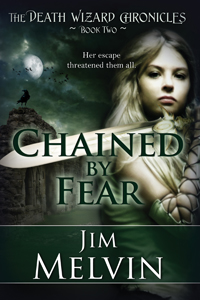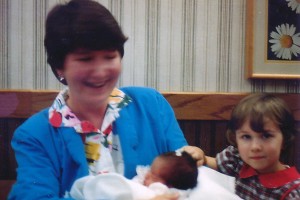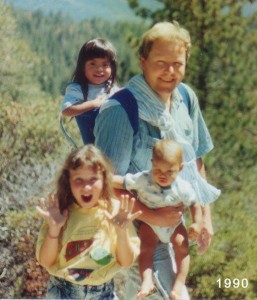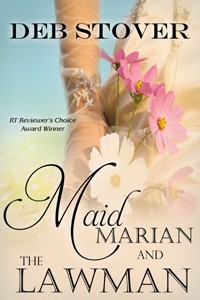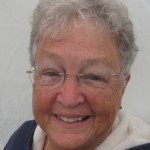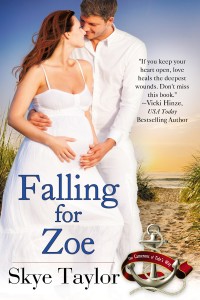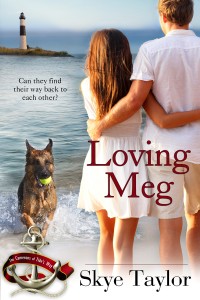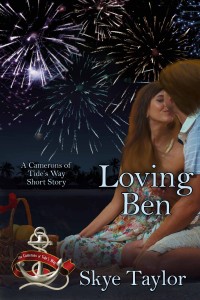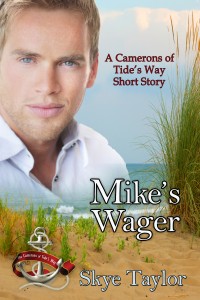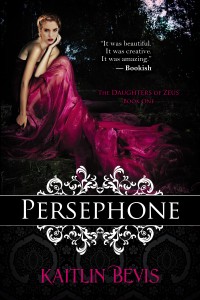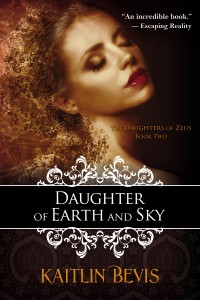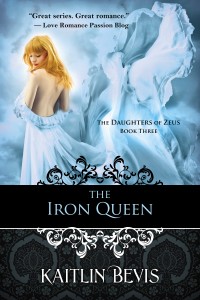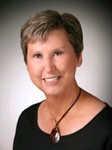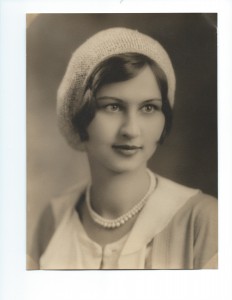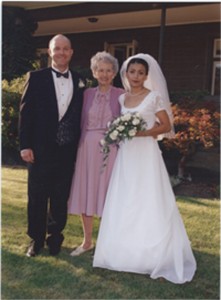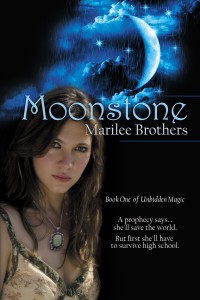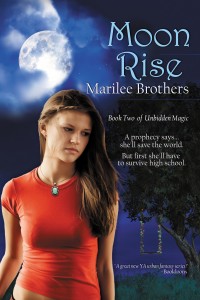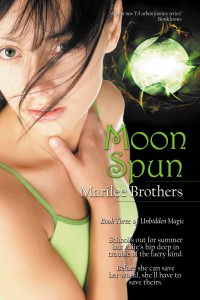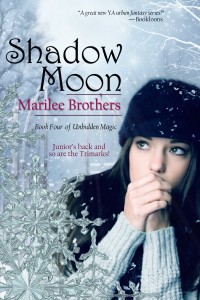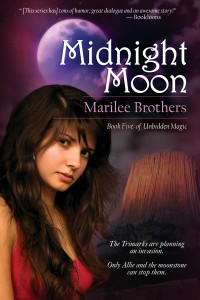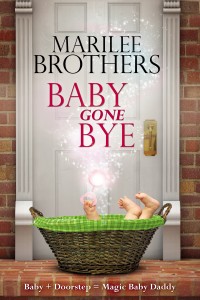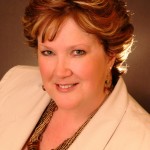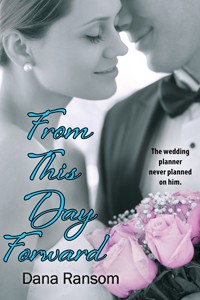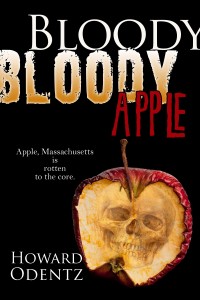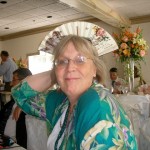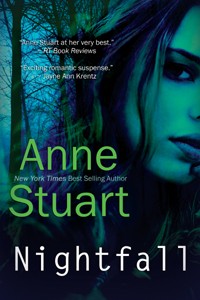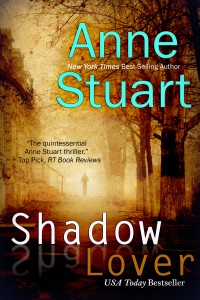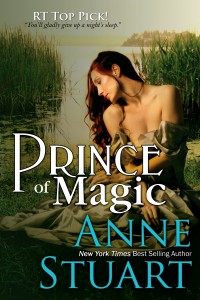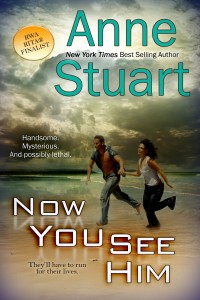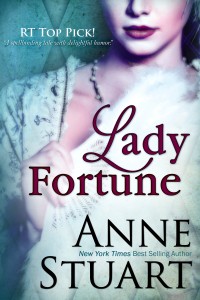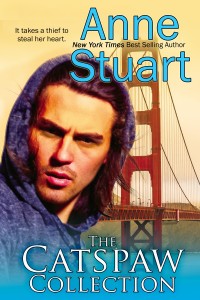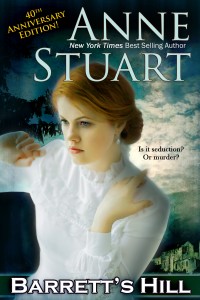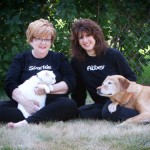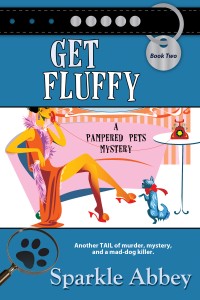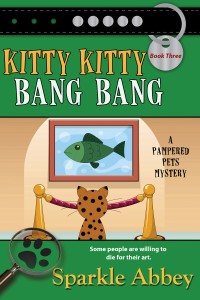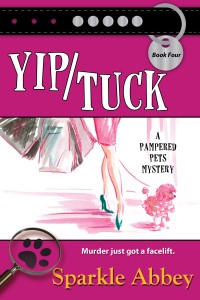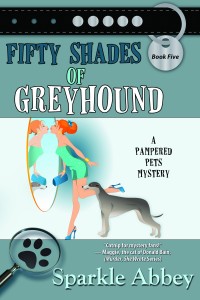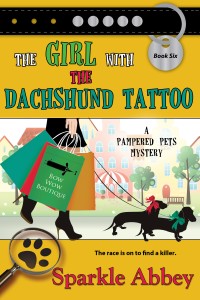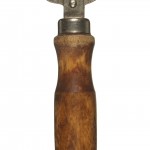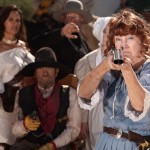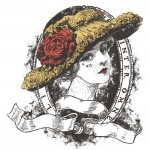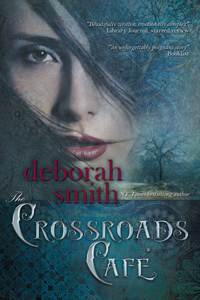Not for the Faint of Heart
“I Got a Happy Meal and Mommy Got a Baby”
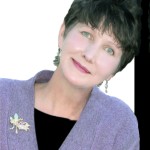 “I Got a Happy Meal and Mommy Got a Baby”
“I Got a Happy Meal and Mommy Got a Baby”
By Deb Stover
Following the birth of our daughter, Barbi, in 1981, my obstetrician said another pregnancy was “paramount to a death wish.” So we spoiled her for four years, then started looking into adoption.
After completing a workshop on special needs adoption and our Home Study, we went on a waiting list as not only potential, but eager, adoptive parents. A mere 3 months later, the phone rang to inform us that a newborn girl with Down Syndrome needed us.
We lived near Tulsa at the time, and Bonnie was born in Oklahoma City. We stayed in constant contact with the agency. Not only was she born with Down Syndrome, but she also had a heart defect. The only test that had been done was a simple EKG. Our medical insurance would cover Bonnie immediately, so I made appointments with a pediatric cardiologist and our pediatrician before we even brought her home.
Finally, the day arrived. The social worker suggested we meet somewhere between Oklahoma City and Tulsa. Dave took the day off and the three of us drove to the appointed rendezvous point.
McDonald’s!
Bonnie only weighed four pounds, fourteen ounces. She was all blanket and hair and beauty. People stared at us as we exchanged baby and paperwork. I have to admit now, it must have appeared rather clandestine, but nothing could have been more right or more good.
The next morning, when I took 4 1/2-year-old Barbi to Noah’s Ark Preschool, she marched in the door and proudly announced to the room, “We went to McDonald’s. I got a Happy Meal and Mommy got a baby.”
The teachers and other parents stared with mouths agape as I stepped in holding our tiny Bonnie. All I could do was laugh, because Barbi had simply told the truth. After a few happy explanations, we made our trip to the cardiologist, where we learned that Bonnie’s condition wasn’t as serious as originally feared. While she did require surgery at eighteen months, she now has a normal–and very loving–heart.
Since that day in 1986, we went through another so-called “special needs” adoption of our son, Ben. As far as we’re concerned, the only special needs were ours, and our children have fulfilled them and then some.
Bonnie’s special all right, but not because of that extra number twenty-one chromosome. She’s special because she’s Bonnie. Her dad often said she was born missing the mean gene. He was right….
My husband is no longer with us, but every Mother’s Day I am surrounded by the love of our children, and blessed with the knowledge that each of them has his love and goodness to carry them through life.
———————————————————————
Maid Marian and the Lawman (Bell Bridge Books) tells the tale of a band of misfits who—much like Deb’s own family—discovers the joy of unconditional love and acceptance.
After declaring her candidacy for President at age four, Deb Stover veered off course to play Lois Lane for a number of years. After she refused to blow Clark Kent’s cover, she turned her attention to her own Real American Hero and married him. Considering her experience with Heroes, redirecting her passion for writing toward Romance Novels seemed a natural progression. For more information, please visit www.debstover.com
My Mother’s Smile
by Skye Taylor
My mom was diagnosed with Alzheimer’s when she was seventy-seven, but even then we all wondered if she’d had it for a lot longer than we or the doctor knew. She’d been completely deaf since her late thirties and while she lip-read very well, she also got to be an expert at pretending she knew what strangers or casual acquaintances were saying even when she didn’t have a clue. In retrospect, we began to realize that she’d been faking it with us as her memory began to fail.
She never seemed frustrated by her loss of memory. In fact, it was the rest of us who were frustrated and she always responded with a big smile that defused our exasperation.
Even before she went into assisted living care, she began to be foggy about who I was. One night when she asked, and I told her, she didn’t believe me. So I hauled out my driver’s license thinking to prove I was who I claimed to be and her shocked reaction was to ask why I was in possession of my sister’s driver’s license. Even she laughed about it two nights later when she did remember who I was. Conversing with a deaf person who can’t recall how the sentence began has moments of humor, but it’s mostly frustrating and increasingly sad. A few things she never forgot – like the fact that it was me who took her car away. Until nearly the end of her life, she held that indignity against me. And she never forgot that her Johnny was the love of her life.
One thing I remember most about her last few years was that in spite of not being sure who I was, she still loved me and it showed. Until she went into care, she lived next door and I always stopped by on my way home from work. She always lit up with welcome and opened her arms for a hug when I walked into her living room. I “talked” to her mostly through written notes on her multitude of notebooks which had the advantage of being able to flip back a page or two when she continued to repeat the same questions. But the visits were always good ones because I knew she enjoyed our moments together even if she remembered nothing of them as soon as I disappeared from sight.
When the call that I’d been dreading for some time came, I rushed to her side at the hospital where her labored breathing was the only sound in the room. Her heart had failed and although the EMTs had gotten it started again, she never did regain consciousness. When her last breath came, my sister was with us and we were talking on the phone with my brother who lived several states away. So we were all together, hanging on to each other and our memories of a mother who had always loved us with her whole heart. I will always remember the stillness and love that filled that room at that moment. But even more, I will always remember the thousand-watt smile that greeted me every time I went to visit her, even long after she’d completely forgotten either my name or my place in her life. Sometimes a mother’s love is felt more than spoken, and ultimately it transcends even death. I see her smile in billowing white clouds against a brilliant blue sky and a dozen other things she loved, and I feel her touch in the soft darkness as I fall asleep each night.
Happy Mother’s Day, Mom. You were and are the best.
Pick up Skye Taylor’s Bell Bridge titles today:
Persephone Tells All—Fear, Power, and Life With Hades
 Persephone Tells All—Fear, Power, and Life With Hades
Persephone Tells All—Fear, Power, and Life With Hades
by Kaitlin Bevis
If you want to know a culture’s fears, study their stories. Fears resonate. They keep us talking, keep us telling the story, because as long as it’s a story, it’s happening to someone else. There’s a reason the Persephone myth is one of the five major myths taught to school children everywhere. There’s a reason echoes of this myth keep popping up in modern culture, sometimes as overtly as my retellings, and other times as subtle as Beauty and the Beast. We tell the same story over and over and over again because it scares us. Something about that myth leaves people feeling unsettled. There’s a wrongness to it that demands to be fixed. So throughout time, we’ve told it again and again, hoping that maybe this time, we’d get it right.
What is it about the Persephone myth that resonates so much with us? On its surface, the answer is simple. Persephone is, at its heart, the story of a mother searching for her daughter. As a mother, I can literally not even imagine the depths of the fear of not knowing where my daughter is, or worse, knowing exactly what horrible place she’s been taken to, but not being able to save her. There is nothing I wouldn’t do to keep her save, and goddess help anyone who gets in my way.
But there’s more than that. There has to be, because as a mom, I get the universal fear behind the myth, but I was fascinated with it long before I became a mother. The most common audience for the Persephone myth aren’t parents, but children. Specifically children on the cusp of adulthood. Teenagers. And I know why.
The myth is incomplete. In the original telling, we know all about Demeter’s fears and motives. We trace her steps through history as she scours the globe looking for her daughter. We glimpse the politics of Olympus enough to understand Zeus’ motives for allowing Hades to take Persephone and the drastic events that had to take place before he relented and returned the missing girl. We’re there for Hades catching a glimpse of Persephone for the first time, and we get his rationale and his motives for why he took her. We even get motives from nymphs and primordial deities with such minor roles that they get written out of most versions of the myth. Literally the only voice missing from the Persephone myth is Persephone’s.
Persephone was silenced, but the impact of her abduction is apparent. Her mythology begins with her as an innocent, carefree, happy girl picking flowers and ends with her role as the Iron Queen, a major force to be reckoned with mythologically speaking. Her name even changes. She has the ultimate coming of age story and she doesn’t even get to tell it.
We’re not just afraid of losing our children, we’re afraid of losing ourselves and our voices. And that fear repeats itself over and over and over again in Greek mythology. Ovid wrote an entire book about transformation in Greek mythology. Cassandra gained an awesome power, only to lose her voice and go insane. We pay the ferryman two coins to take us across the river because the potential of being thrown in Tartarus is less frightening than the thought of being stuck on the wrong side of the river, alone and ignored. Orpheus was featured just as prominently in Greek mythology as Hercules and literally the only superpower he had was the ability to make people listen.
I wanted to tell Persephone’s story. I wanted to get into her head and understand her transformation into the Iron Queen. I changed details here and there and I modernized the story, but I did my best to stay true to the spirit of the myth. One of the ways I did that was through the book titles. In the myth, Persephone was defined by her titles.
Book one, Persephone, is about her transformation from an ordinary girl named Kora, to Persephone, the Queen of the Underworld. It’s the story of her abduction. Her time in the Underworld changes her, but her story doesn’t end there.
I called the second one Daughter of the Earth and Sky because in the myth, Persephone’s value was placed in her role to other people. She was Demeter’s daughter, Zeus’ daughter and pawn, and Hades’ wife. The second book in the trilogy is all about Persephone trying, and failing, to balance all of her roles and the expectations that come with them without losing herself in the process. She starts the book clinging to the remnants of her old life and trying to make them fit into what she thinks her new life should be. She’s so afraid of who she might be becoming that she loses sight of who she is.
In the myths, it wasn’t until she came into her own as The Iron Queen that Persephone was referred to as a person in her own right instead of an object. Book three Persephone is a force to be reckoned with. Writing that, reaching that point with her character, was an incredible awarding experience that settled the sense of wrongness hearing the myth had left me with. I can only hope reading it does the same thing.
Pick up the first two books of The Daughters of Zeus series today!
And make sure you grab THE IRON QUEEN
available for pre order!
Mama Was a Diva
by Marilee Brothers
If you’re looking for a warm, fuzzy, my-mama-was-the best-mother-ever story, you might want to stop reading now. My mother was a diva long before the word became part of the current vernacular. The only daughter of doting parents, she was clad in frilly dresses, wore a giant bow in her hair, learned to read at four and became a concert pianist in her teens. She was a beauty with an independent streak. In the roaring twenties, she bobbed her hair, visited speakeasies and sneaked cigarettes. At age 23, she married my father, an outstanding athlete whose pitching record for the University of Washington still stands.
My sister Beth came along first. Five years later, I was born. I’m not sure what troubled my mother, but some of my earliest memories are of long, sulky silences where we knew we’d done something wrong, but weren’t sure what it was. She was unable to express anger and disapproval and eventually, turned it inward. For years she was stricken with migraines and depression. One of my jobs was to tiptoe into the darkened bedroom and rub her aching forehead.
As my sister and I blossomed into our teen years, things became more difficult for our mother as her beauty began to fade. It was almost as if she resented the daughters she’d given birth to. At age twelve, I was a tall, gawky, shy kid. I remember crying when she refused to help me fix my hair. Fortunately, I had a big sister.
Years passed. My sister and I married into warm, loving families and had children of our own. Both of us stayed connected to our birth family, especially me since we lived in the same town. Mother was in her late eighties when the miracle happened. She had a slight stroke. Yes, I know. That sounds heartless. But truly, my mother, the former hypochondriac, was transformed into a different person. She was physically unaffected by the stroke, but her mental attitude underwent a cataclysmic change. She became the sweetest little old lady on the face of the planet. In her former life, a hangnail was a good reason to take to her bed. When she was 89, she fell and broke some ribs. I said, “Oh, that must hurt!” Her response? “Nope, not at all.”
On her last birthday, the 94th, it fell on Mothers’ Day. Her May 13th birthday often did. I have a picture in my office of the two of us posing with her birthday cake. The day she died, my husband received the call first and got to her bedside before I did. Later, he told me she was restless and uncomfortable until I arrived to hold her hand. She then relaxed, looked at me and smiled. I was with her as her breaths became farther and farther apart and finally stopped altogether. I am so thankful that, in my mother’s later years, I was able to make the mother-daughter connection I’d been longing for. It’s never too late.
Pick up Marilee Brothers’s Bell Bridge titles today:
MOTHER’S DAY MEMORIES
by Nancy Gideon
My favorite memory of Mother’s Day was in 1983. I was pregnant with my first son and at that moment, the fact of motherhood (other than the already swelling feet) made a unique impression upon me. It got me thinking about what kind of mom I’d be and the things that I’d learned from my own that I wanted to pass on.
My mom was my hero. She was 41 when I was born (as if that wasn’t enough to denote hero status!). Many mistook her for my grandmother. She was the middle child of five living in Florida and would amaze us in telling stories of how she was terrified of the gas mask that her neighbor’s son brought home from WWI, of her grandmother shaking her bible from the front porch at Babe Ruth who rented the house across the street during spring training, of living in a pre-civil Rights South, and of her brothers delivering newspapers to Thomas Edison and Henry Ford (both of whom signed their diplomas). Stories about bravely traveling alone to New England to go to nursing school to become an occupational therapist, of reading my dad’s redacted letters from the Philippines where he was in the medical corp during WW II. Of being a busy stay at home mom who sewed our clothes, pressed our sheets and curtains in a mangle and canned from our garden until I was the last to start kindergarten. Then she returned to OT part time, saving money to give her three girls the one thing she felt was more important than anything else: higher education. My mom was filled with nearly a century of history, but her eye was always on the future. Except for Star Trek. She never got Star Trek.
I knew I wanted to be a writer from the time I was in grade school and my mom always supported that dream. The one time she stood firm was when I graduated high school. I was working and didn’t see the need for college – I was going to be a writer, after all. She told me flatly, get your education first then you can be anything you want to be. Knowledge was something never wasted. It opened doors for her and she wanted me to have unlimited opportunities, too. Every time I sit down to plot or edit or research, I’m thankful for that line she drew. She was my biggest fan when it came to my books. And I’m still hers. Happy Mother’s Day, Mom!
FROM THIS DAY FORWARD by Nancy Gideon (w/a Dana Ransom) is a Big Deal on Amazon for only $1.99! Grab it today!
This offer only lasts until the 24th!
“The Infamous ‘Eyebrow'”
by Howard Odentz
I don’t have the infamous ‘eyebrow’.
You see, every time I look at a blog or a site devoted to horror writers, each one of them is pictured very close to the camera with their fingers tented in front of them and one eyebrow arching to the sky.
Just one.
I can’t do that. I also can’t taste that weird litmus paper from high school biology. I can, however, curl my tongue, but I doubt that little talent is going to help me look like the author of the creepy things I write about.
I suppose it all comes down to genetics—my genotype forces me to write scary things. My phenotype is somewhere between a New England preppy and a cartoon. Nope—nothing disturbing about that, unless you have an irrational fear of all things L.L. Bean or Looney Tunes.
How my brain got so twisted inside, who’s to say? All I know is that when my hands fall on the keyboard, murderous psychopaths and gory visions flow out of them, and sometimes children who like to kill.
So how is it that my favorite holiday is Halloween? What mental glitch makes me turn to ‘The Walking Dead’ instead of ‘Downton Abbey’? Why do I scour YouTube in search of scary videos that will add spice to my nightmares while I sleep because I think regular dreams are so boring?
Who knows?
My parents were no more terrifying than me. My sisters devoured Harlequin romances like they were the best thing ever. Sure, I was terrified of the family poodle, but she had little needle teeth and growled at me every time she had a bone and I walked into the same room. Who wouldn’t run screaming the other way—or dress her in doll clothes when she had the rare mellow moment?
For whatever the reason, I’m told that people burst out laughing in the middle of some of my horror stories. I guess there’s a little bit of funny swimming beneath the troubled current of everything I write. That humorous shark-fin that can give you the giggles sometimes surfaces. I don’t know why and I don’t know how, but even when I don’t want it to be there, it sometimes knifes through my words, attached to a gigantic killer lurking just beneath each page.
In the end, I guess I can’t fight the scary or the dark humor. I suppose my eyes will always naturally stray to the creepy, twisted edges of things. It’s a weird way of looking at the world, but it’s my way, and I long ago learned not to fight it.
So that’s my story and I’m sticking to it. For now, I have to run. My llamas are staring at me with those huge, dead eyes, hoping that I’ll grain them soon, and I have an appointment to get my dog, Einstein, fitted for a wheelchair.
What? That’s normal, isn’t it?
Isn’t it?
Pick up BLOODY BLOODY APPLE for only $1.99 today only from Amazon!
Howard Odentz is a Western Massachusetts author of playwright. His first novel, ‘Dead (a Lot)’, described as a humorous and thrilling zombie-ride, was published by Bell Bridge books in 2013. In 2014 it hit #1 on Amazon in several categories including young adult horror and humor-horror. In 2015 it became an Ariana Award Winner and an Epic Award Finalist.
His latest novel ‘Bloody Bloody Apple’ was released on October 17, 2014 to all major on-line platforms including Amazon, Barnes & Noble, Kobo, Apple and Google Play. It is also available for order through bookstores or through the publisher, Bell Bridge, at www.bellebooks.com.
Read more about Howard Odentz at www.howardodentz.com.
Mother’s Day
by Anne Stuart
My childhood was not the stuff of dreams. I loved my mother, and she loved me to the best of her ability, but the fact is she didn’t like children. Why she had three of them is beyond me – I think she figured she ought to love them, and post war everyone was having three and four children.
Needless to say, with three children she didn’t want and an alcoholic husband, my mother suffered from depression and rages, and life in the Stuart family was fraught with chaos.
Things finally imploded when I was seventeen, when both my parents were hospitalized and I was sent to live with my aunt and uncle. I’d basically cut class the first half of my senior year in high school, and suddenly I had to toe the line. One class, that I will forever bless, was called Personal Typing.
The teacher was a fluttery, elderly woman named Miss Hale, who drew a picture of a tree on the blackboard and would exhort us to “hang our troubles on the trouble tree” while we learned touch typing.
The week before Mother’s Day she decided to teach us how to write cards, folding the paper in quarters, writing a couplet on the outside and the inside.
I came up with something like “Roses are red, violets are gray, my mother is gone, she abandoned me today.” I was being a smart ass, of course.
Miss Hale came around, checking everyone’s work, and when she looked over my shoulder she let out an anguished cry and flung her arms around me, much to my embarrassment. I stayed after class to explain the situation in my nonchalant way, and she insisted I write a kind greeting card to my mother. Sigh.
Some teenagers are just too cynical for their own good.
The happy ending to all this is I became an adult and my mother liked adults, she was enormously proud of me, and I took excellent care of her until she died at 98. Her last words to me were, “it’s my darling Krissie.”
And I never sent her that Mother’s Day card.
Pick up Anne Stuart’s titles from Bell Bridge Books today:
The Pawleys
A brief episode in the British family history of Lady Toria Cash, the feline fatale of Downton Tabby
by Sparkle Abbey
“Can you believe that alley cat?” Lady Meow Grandcatham lifted her whiskers in distain. “Thinking I’d simply fall under the spell of his gorgeous green eyes.”
I shook my head. “He does seem rather cheeky.” I’m Annakatrina, Lady’s Meow’s lady’s maid, and the alley cat she was referring to was Alexander Kittingham who’d apparently made a play for Lady Meow in a big way.
I carefully folded the lace frill she’d worn to dinner and reached for  the brush I used every night on her silky black fur. Though I would never bring it up to Lady Meow, talk below stairs was that Alexander Kittingham was not actually a purebred British shorthair. He was often referred to as “Alley” in a disparaging tone, by Thomas Cat, Lord Grandcatham’s valet. Alexander was quite a handsome fellow and a favorite of the ladies around the dinner bowl.
the brush I used every night on her silky black fur. Though I would never bring it up to Lady Meow, talk below stairs was that Alexander Kittingham was not actually a purebred British shorthair. He was often referred to as “Alley” in a disparaging tone, by Thomas Cat, Lord Grandcatham’s valet. Alexander was quite a handsome fellow and a favorite of the ladies around the dinner bowl.
He was nice looking with dark brown fur and deep green eyes, but I was not impressed. You see I’m madly in love with Mr. Bait. Poor Mr. Bait is currently locked up in the pound, but I had no doubt he would be freed.
“Beyond cheeky, I’d say.” Lady Meow lifted her paw to her neck. “Would you help me get out of this collar?”
I pulled on the diamond collar with my teeth and it snapped off easily. Carefully placing it in the ornate trinket box, I picked up the brush again.
 Suddenly, there was a scratch at the door and I moved quickly to open it. Lady Vi, Meow’s grandmother, stepped into the room. She was a formidable feline and referred to as the Dogwagger Countess because even the dogs at the neighboring estates were afraid of her. I don’t believe she’d ever actually bitten anyone canine or otherwise, but all it took was a hiss and the very slight unsheathing of her claws and it was clear she meant business.
Suddenly, there was a scratch at the door and I moved quickly to open it. Lady Vi, Meow’s grandmother, stepped into the room. She was a formidable feline and referred to as the Dogwagger Countess because even the dogs at the neighboring estates were afraid of her. I don’t believe she’d ever actually bitten anyone canine or otherwise, but all it took was a hiss and the very slight unsheathing of her claws and it was clear she meant business.
“Grandmother.” Lady Meow purred. “What a surprise.”
“Not an unpleasant one, I hope.” The older feline stepped closer so Lady Meow could bump noses with her.
“I’ll leave you.” I moved quietly on soft paws toward the door.
“No, please stay.” The Dogwagger waved her tail in my direction. “I know Meow trusts you.”
“What is it, Grandmama?” Lady Meow dropped on her haunches. “Is something wrong?”
“What is wrong is my sources tell me someone is publishing a catty tell all tome about the Britain’s aristocats. I am told there’s a whole chapter devoted to the Grandcatham Family.” She leaned on the edge of Lady’s Meow’s bed and smoothed her fur.
Lady Meow began to pace. “Have you told Pappa’?
The Dogwagger shook her head. “No, nor your mother. It will be up to us to sort this out.” She gave a deep sigh and tipped her head to look at me. “We must find out who this low-life is and stop him or her before our good name is dragged through the litter box.” Sharp blue eyes pinned me in place.
“What can I do to help, M ‘lady?”
“My dear, you must be our eyes and ears.” The Dogwagger put her paws together as if it were all settled. “You can go places we must not and you will never be noticed.”
I had the thought that not being noticed was hardly complimentary, but knew she was right.
“You will help us, won’t you, Anna?” Lady Meow crossed the room in a single smooth leap to stand in front of me. Her golden eyes searched my face.
“Of course, I will.” I bowed my head.
And thus began my new career as Annakatrina, Cat Sleuth.
What would Mr. Bait think?
*
Downton Tabby, book seven in The Pampered Pets Mysteries by Sparkle Abbey, is now available for pre-order at Amazon. Visit Sparkle Abbey at sparkleabbey.com.
And don’t forget to grab your other favorite Sparkle Abbey titles, on sale til the 10th!
Why is there no Grandmother’s Day?
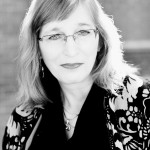 Why is there no Grandmother’s Day?
Why is there no Grandmother’s Day?
This is a trick question.
Every book I write, including The Crossroads Café, focuses not only on a core romance story but is also about family; mothers, fathers, daughters, sons, and grandparents. Sometimes the theme may be subtle, sometimes not. Family is the parallel core, regardless.
My mother made me what I am today.
All the good stuff and the bad. Some of it sad, but forgiveness was always a given between us.
She was simple, easy, heartbreaking, wonderful. Ma was normal, flawed, like me, but kinder than I am and more realistic. I miss her every moment of every day. She died in my home nine years ago next December, her bedroom filled with Christmas decorations, with me standing beside the rented hospital bed, yelling for help from the hospice nurse.
I am writing this in a sunroom that is now my office, just outside her bedroom. Fifteen feet from where she lay in that sad, rented bed with its undulating air-pump mattress to prevent bed sores, its pull-up rails to keep her from tumbling out, and the loud, gasp-and-release gush of the oxygen concentrator that fed life into her cigarette-ruined lungs.
A few of her clothes still hang in the room’s closet. I store my yarn in there, and so I often stroke her dresses while searching for a skein or hank. Her soft fleece jacket, her nightgowns. I talk to them. To her.
I want her forgiveness for something. It’s always there, the need to be forgiven by her.
Forgiveness was never an issue with my grandmother, however. Forgiveness was for weaklings. She wanted to mold me into a fire-breathing dragon, the spitting were-cat of Southern womanhood. Just like her.
As a result, I’m a product of a mixed marriage.
Submissive, chain-smoking, hard-drinking, tender-hearted Mama.
Dominant, teetotaler, hard-hearted Grandmother.
I have the fantasies of a Valkyrie mixed with the manners of a furious wildcat shellacked with the veneer of Melanie Wilkes.
Why, bless your heart. And to hell with you.
There she is. Grandma is peeking around the corner of my mind, whispering to me. Good angel or fallen angel? Both?
She defended me fiercely during my years as a whacky teenager, but would come into my tiny bedroom when I slept too late and throw a pan of sizzling, oven-broiled buttered toast on me.
On the eve of my wedding, she very dramatically (at 85 years old) staggered down her hallway and collapsed loudly against my bedroom door.
“Have your fun and spend your money the way you want to before you get married. After that, you’re stuck.”
No offense to my beloved Husband of lo’ these many years, but she had a point, at least in her experience. She’d given up her career at Western Union in the 1940’s, as a trainer of telegram operators, because my grandfather (who also worked for Western Union) said she must stay home and become a fulltime mother to my Dad.
Dad turned out to be an only child. Go figure.
She put aside her daily downtown Atlanta life, where she rubbed shoulders with Margaret Mitchell, shopped at Rich’s Department Store, and was among the first at Western Union to know that President Roosevelt had died at Warm Springs—top secret messages came through her office on their way to Washington, D.C.—to become a farm wife wearing aprons and canning vegetables.
The anger in her was immense. As a child I watched her gleefully wring chickens by the neck; she patrolled her property with a sawed-off shotgun and challenged neighbors to so much as set foot inside her territory. Before electric or even hand-cranked can openers, she jabbed the wicked blade of a hand-held can opener into quivering tin containers. She pumped the blade around their rims like an oysterman cracking a shell.
She could kill people with that can blade. I’m not sure she hadn’t stabbed a few. Some of her nefarious siblings (from a dirt-poor family of eleven kids) challenged her as long as she lived.
She adored her baby brothers—they could do no wrong, in her mind—the preacher, the polio survivor, the dead war hero, and the youngest brother who joined the navy not long after World War One and eventually settled in sunny California with a bawdy, lovable, California beach babe.
But her sisters? Whoa. It was whispered she’d hauled her indiscreet younger sisters to back-alley abortionists in their teens; she’d even incarcerated one sister in a Catholic “school” for girls. Grandmother didn’t care about religion, not seriously, so she had few prejudices in that regard. To her, Catholic nuns were admirably strict. She judged them on that merit, alone.
Grandmother didn’t take excuses for an answer. This was the girl who got on a train in 1911 and traveled to the far end of Georgia. She was seventeen years old and had never been outside her own home county before.
She worked her way through a teacher’s college amidst the hot cotton fields of South Georgia, waiting tables in the faculty dining room.
It was a co-ed school. The boys studied farming. Modern agriculture. Grandma became sweethearts with a football player. She posed for a picture on a tennis court, of all things, holding a racket and pretending she would ever willingly smack a ball for fun; besides, the college’s dress code was still rooted in the 1800’s. So there she stood, the farm girl corseted into a dark, full-length dress with puffed seeves. Her brown hair was done up in a high Gibson Girl ’do.
Her expression looked grim.
You’re going to aim a stupid little ball at me? You’ll wish you’d been skinned alive, instead.
She never doubted herself, never apologized, never backed down. At the end of her life, as she lay in a nursing home at ninety-two, with me holding her hand, I said, “I love you.” I had hardly ever said that to her before. She’d never said it to anyone, me included.
“I love you,” I said.
“I know,” she answered.
Couldn’t pry a return confession out of her. Not even with Death’s scepter as the can opener.
Remember your family with THE CROSSROADS CAFE – an April Monthly Deal for only $1.99!





